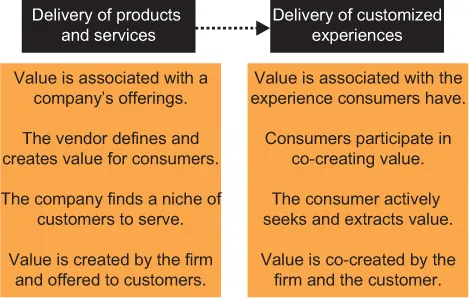
Summary: The Future of Competition
Review and Analysis of Prahalad and Ramaswamy's Book
BusinessNews Publishing
- English
- ePUB (adapté aux mobiles)
- Disponible sur iOS et Android
Summary: The Future of Competition
Review and Analysis of Prahalad and Ramaswamy's Book
BusinessNews Publishing
À propos de ce livre
The must-read summary of C.K. Prahald and Venkat Ramaswamy's book: `The Future of Competition: Co-Creating Unique Value with Customers`.
This complete summary of the ideas from C.K. Prahald and Venkat Ramaswamy's book `The Future of Competition` shows how commercial advantage used to be created by manufacturing a better product. Nowadays, value comes from the experiences of customers. In their book, the authors explain the basic principles of co-creation and how businesses can implement them in order to increase the value of consumer products. This summary will teach you how to make co-creation your starting premise, making your business more efficient, your customers more loyal and your profits healthier.
Added-value of this summary:
• Save time
• Understand key concepts
• Expand your business knowledge
To learn more, read `The Future of Competition` and find out the key to becoming a forward-thinking company and staying on top in the future.
Foire aux questions
Informations
Summary of The Future of Competition (C.K. Prahalad and Venkat Ramaswamy)
1. The new view of value creation
- As a result of Internet access, knowledgeable consumers are now prepared to make more informed decisions for themselves rather than rely on the suggestions of “experts”.
- Consumers now take a more global viewpoint because they are able to access information on firms, products and technologies from around the world.
- Consumer communities are emerging where customers share their experiences with others who are considering buying products or services. Consumers today are far more active and better networked than a few generations ago.
- Consumers are prepared to experiment with and develop new products – especially digital products – which are suited to their specific needs.

- Managers will need to attend to the quality of the consumer’s co-creation experiences and not just to the quality of their firm’s products and services.
- Quality will be dependant on the delivery of variable customer experiences rather than improvements in operational efficiency, the mainstay of management attention in the past.
- Since added value will be unique to each individual, the marketplace will become more of a forum and less like a shop display.
- Competitive advantage in this kind of environment will accrue to the firms which can couple innovation with customer experiences.
- There will be many opportunities for firms to co-create value in ways that will be fundamentally different from those which worked in the past.